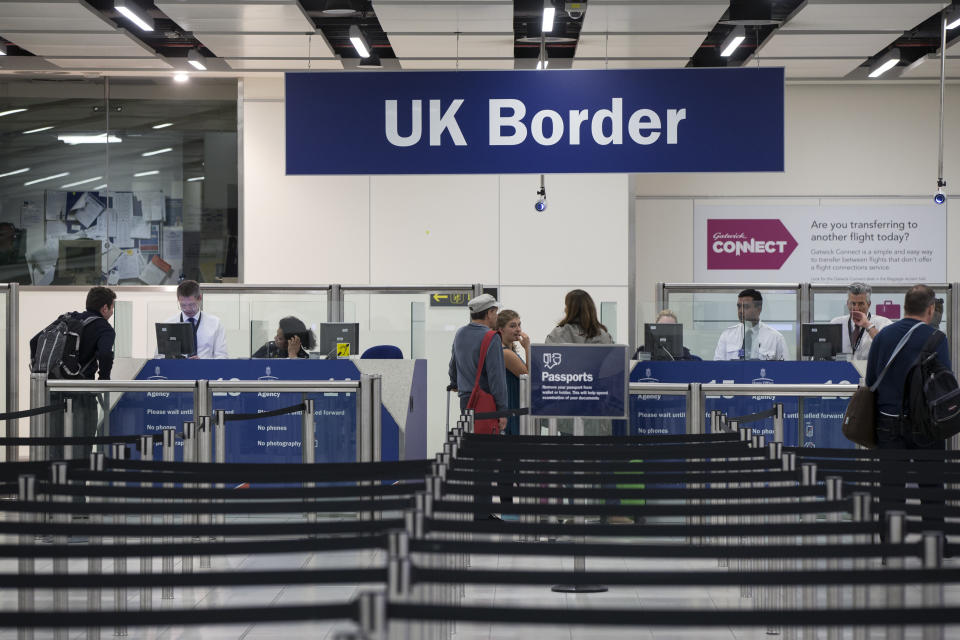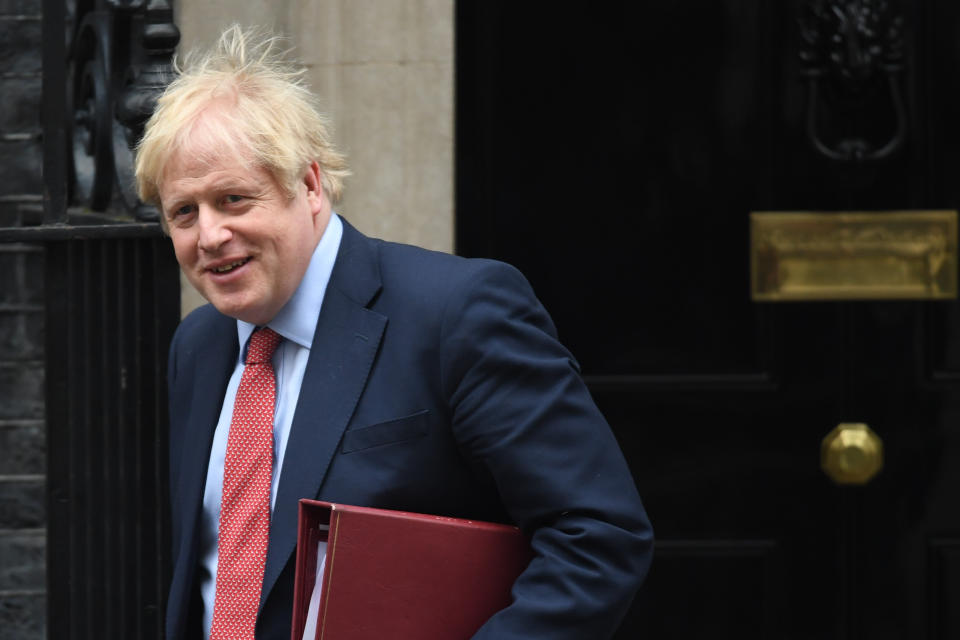UK government told to lower controversial migrant salary cap

Britain should keep a controversial salary cap on migrants arriving to fill jobs in the UK, according to a review carried out for the UK government.
But the migration advisory committee urged prime minister Boris Johnson’s administration to lower the minimum pay threshold from £30,000 to £25,600 for medium- and high-skilled migrants with job offers.
A report published by the committee on Tuesday said a cap would stop employers hiring some migrants “simply because they are cheaper,” but backed lowering the threshold after lobbying by firms.
It also set out how a points-based system for migrants without jobs could work. An “Australia-style” system was one of Johnson’s key election pledges, in a bid to ease public anger over migration reflected in the Brexit vote.
READ MORE: Firms still fear staff shortages and red tape despite lower salary cap
A spokesman for the prime minister said he would “carefully consider” the report before unveiling the government’s final plans.
The committee warned the changes overall could hit GDP growth, but could also improve productivity and reduce pressure on the NHS, schools, and social housing.
Professor Alan Manning, chair of the committee, said the reforms meant a “more open” system for non-EU applicants but said the biggest impact would be a “more restrictive” system for EU migrants.
He said at a press conference in London that much of the low-skilled migration from eastern and central European countries that joined the EU in 2004 was the kind that would no longer be eligible.
He admitted the risk “does go up” of people smuggling, after Yahoo Finance UK asked about another government adviser’s concerns more EU migrants could look for illegal ways to enter the UK.
A £25,600 salary cap for migrants with jobs

Dozens of UK business groups had written to the UK government last week arguing for a much lower minimum salary of around £20,000.
Some firms fear staff shortages particularly in low-skilled jobs as EU free movement comes to an end, with EU nationals set to face the same entry bars as non-EU migrants.
The report said most employers surveyed were opposed to salary thresholds, as it could “add to costs and make running businesses harder.”
But the committee backed the salary rules in spite of recent government briefings suggesting they could be scrapped, and said the UK should maintain even higher thresholds for better-paid occupations. London should not have a higher threshold and there should be no regional variation, it said.
READ MORE: Government tsar warns EU migration curbs could fuel people smuggling
Manning wrote in the foreword: “Salary thresholds prevent undercutting in the labour market, ensuring that employers are not hiring migrants simply because they are cheaper.”
It also said the threshold would ensure migrants paid enough taxes to “improve the public finances,” and would help transform the UK into a “high-wage, high-skill, high-productivity economy.”
Teachers, skilled NHS workers, and new entrants should continue to benefit from lower salary thresholds, according to the report.
But Labour shadow home secretary Diane Abbott warned: “Even a lower salary cap won’t help recruit the hospital staff we need, the social care workers or many of the new recruits to private businesses.”
A points-based system for migrants without jobs
The committee also fleshed out the options for a points-based system for migrants without jobs, which Johnson had promised to introduce.
It said applicants should receive “more points for the types of migrants the government wants to encourage,” such as those qualified in science, technology, engineering, and mathematics.
READ MORE: Adopt business-friendly immigration policies, businesses say
It also backed points for applicants in creative fields, and said the government should reward “exceptional promise” and not just “exceptional talent.” But it said overall numbers should be capped.
The points-based system should replace the current tier 1 visa for ‘exceptional talent,’ the panel said, which currently set the bar “far too high” and had only 600 applicants last year.
How it could affect the UK economy and public services

The report said the skill threshold could have mixed impacts on the UK economy compared to continued free movement.
It admitted: “No system for picking winners will be perfect and there will inevitably be some admitted on those routes where promise does not deliver.”
Manning added that skill and salary thresholds were “likely to reduce future growth” of both the population and the economy.
But he added: “We estimate very small increases in GDP per capita and productivity, slightly improved public finances, slightly reduced pressures on the NHS, schools and on social housing, though slightly increased pressure on social care.”
The committee was only asked to report on a points-based system and salary cap, but said the government could separately consider a temporary work route for lower-skilled workers.
Businesses had called for a two-year transition to prepare for any reforms, but the government plans to launch them in January 2021. Manning said “some of the changes” were deliverable by that date, but others could prove more complex.
A Number 10 spokesman said: “The government will introduce a firmer and fairer points-based immigration system from 2021 that welcomes talent from around the world while reducing low-skilled migrants and bringing overall numbers down.”
READ MORE: Attitudes to immigration change ‘easily and rapidly’ among voters

 Yahoo Finance
Yahoo Finance 